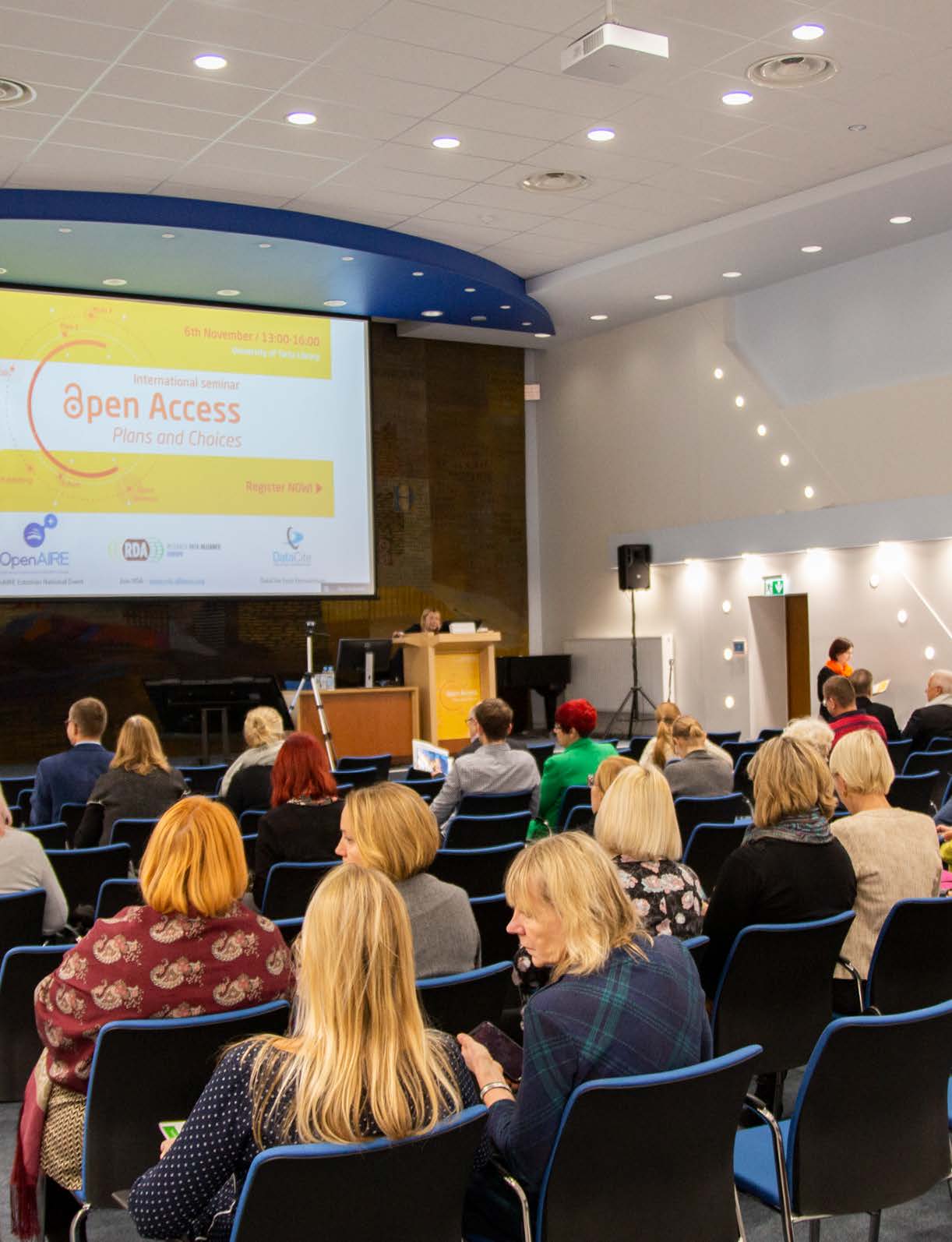Tartu Ülikooli raamatukogu – avatud teaduse lipulaev
DOI:
https://doi.org/10.15157/tyrtar.v12i.19091Abstract
The University of Tartu Library - the Flag-bearer of Open Science
Activities of the University of Tartu Library in promoting open science were started with the introduction of the possibilities offered by open access (2009). During the recent decade, the library has become a leading open science activities-related institution in Estonia and a good partner for international organisations and projects. The Library has created a matrix management-based trans-departmental Open Science Work Group, which cooperates with other units within the university (Grant Office, the Centre for Ethics, ETAIS and HPC) and without (Ministry of Education and Research, Estonian Research Council,
other universities).
UT Library is a member of a number of international organisations engaged in open science activities, such as DataCite, RDA and COAR; the library is the OpenAIRE Estonian National Open Access Desk (NOAD). The library participates in many international projects (OpenAIRE, EOSC-Nordic, Enlight Rise). The main open science-related activities involve different ways of supporting the UT researchers. The library offers repositories for publishing research data and different publications, an open access publication platform, and possibilities for creating subject databases and using text analysis tools.
Another important area of activities is the teaching of junior researchers and doctoral students. For this purpose, several e-courses on data management were created at the library. The most exhausting course „Research data management and publication” was developed in cooperation with the team of the data management platform PlutoF. This course was awarded the e-course quality label in 2020.
Teaching of researchers is also the objective of international seminars held at the library once or twice a
year, inviting best specialists in their field from different areas.
Open science is advertised and marketed via a number of different channels – the UT Library web page, and the DataCite Estonia Consortium’s web page for data centres, researchers and partner universities. The Estonian Open Science policy is still under development, but it would be good if its main information channel were the web page and logo of Open Science. Ideally, it could be the brand for all Estonian open science activities, known and used by all.
Downloads

